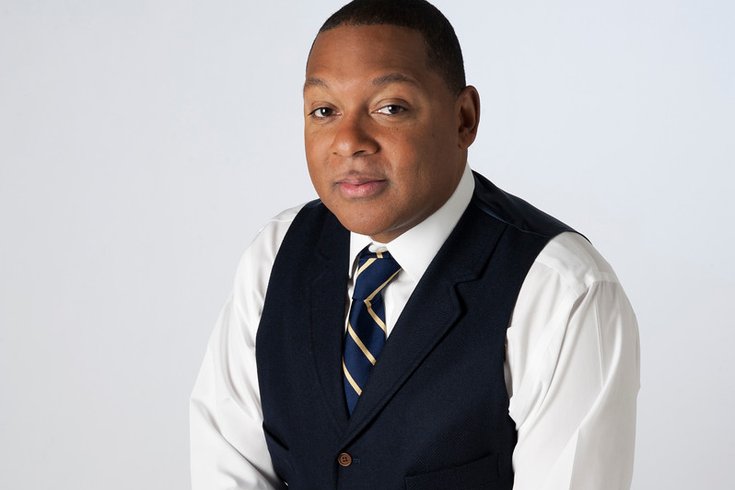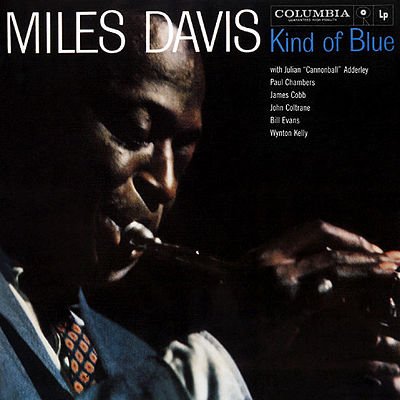
May 11, 2016
 Frank Stewart for Jazz at Lincoln Center/for PhillyVoice
Frank Stewart for Jazz at Lincoln Center/for PhillyVoice
Wynton Marsalis of the Jazz at Lincoln Center Orchestra
Miles Davis famously refused to suffer fools while he was alive, so why would he be any less ill-tempered from beyond the grave?
Granted, Marcus Printup was speaking figuratively when he said that he “felt the ghost of Miles Davis talking to me” while arranging the legendary trumpeter’s tunes for the Jazz at Lincoln Center Orchestra’s tribute concert (which will stop into the Kimmel Center on Sunday). But the message that Printup received sounds perfectly in character for a spectral Miles, especially when whispered in Davis’ familiar rasp:
“He said, ‘Man, play your own sh--.’”
Printup tried to take that lesson to heart when selecting tunes for the concert, which he co-organized with JLCO drummer Ali Jackson. The first question that has to be asked when paying homage to Miles Davis is, “Which Miles Davis?”
Jackson and Printup answered with a tentative, “All of them,” including tunes from nearly every decade in which Davis was active, from Charlie Parker’s “Donna Lee” in the ’40s to the electric “Tutu” in the ’80s, while allowing that one evening is hardly enough time to represent the full scope of his artistry.
“I wish we had 10 shows,” Printup said. “I heard Miles Davis for the first time when I was 18-years-old. From that point on I learned of his greatness, and I’m still learning. He’s a true genius.”
A member of the JLCO since 1993, Printup has not only had the chance to explore the music of some of jazz’s greatest composers, but has played the trumpet alongside the instrument’s most renowned (if sometimes controversially so) modern practitioner: Wynton Marsalis. When I spoke to the bandleader in February, he bristled a bit at calling this weekend’s performance a “tribute concert.”
“We never really do tributes to people,” Marsalis explained. “We just play their music. I’m not ‘tributing’ Haydn when I play his concerto, I’m just playing it."
“We never really do tributes to people,” Marsalis explained. “We just play their music. I’m not ‘tributing’ Haydn when I play his concerto, I’m just playing it. There’s so much interesting music that’s not yours. To be a musician and enjoy playing music, the more music you can play the more fun you’re going to have.”
The comparison to a classical orchestra is an apt one; while the JLCO does play original music by its members or by modern jazz artists, it’s best known for its dedication to the great composers of the past. It plays that music impeccably, sometimes overly so, its archetypal representation of a classic jazz sound often crowding out the adventurousness that can make the music thrilling. Much of that comes from Marsalis’ well-known conservativism about the jazz tradition.
While Sunday’s concert will cover the breadth of Davis’ career it will lean heavily on the ’50s and ’60s. When asked for a favorite Miles Davis record, Marsalis returned to the one title that can be found in every dorm room record collection: "Kind of Blue" from 1959, a year that looms large in Marsalis’ jazz pantheon. While the album’s greatness (not to mention ubiquity) is impossible to deny, Davis was among those who rejected Marsalis’ tunnel-like focus on the era. The two feuded publicly in the later years of Davis’ life, trading barbs in the press and facing off on the bandstand at one point, when Marsalis invited himself onto the stage during a Davis performance only to be brusquely (and, of course, profanely) rebuked by the master.
For his part, Marsalis seems to have long since put any bad feelings behind him, calling Davis “a phenomenal musician and trumpet player and a great thinker. He created a definitive style of playing and was very influential on musicians.”
Growing up in Conyers, Georgia, Printup was more interested in playing football than jazz until the waning months of his high school years. At first a disciple of Clifford Brown, he was introduced to Miles’ music through the trumpeter’s synth-heavy 1980s output, only coming to revere Davis, whom he calls “my favorite trumpet player,” once he dug further back into his early work.
“Miles Davis didn’t play the highest notes,” Printup said. “He had speed but didn’t play as fast as Dizzy or some of those other cats. But there’s something about that sound and that soul when Miles plays. There’s something so cutting and personal about his sound, it grabs you immediately. He sounded like himself, and I think that’s the ultimate goal for any jazz musician. The horn is an inanimate object but it becomes a part of your soul.”
Jazz at Lincoln Center Orchestra with Wynton Marsalis
Sunday, May 15
8 p.m., $50-$100
kimmelcenter.org
